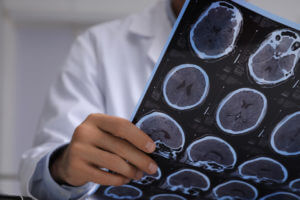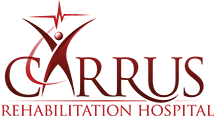
A concussion is commonly categorized as a kind of traumatic brain injury in which the brain collides against the interior of the skull. The causes concussions include falls, blows to the head, and even shaking or violent head movements during a car crash. Even mild concussions can cause symptoms which should not be ignored. In this blog, we will look at the symptoms of a concussion, its long-term effects, and treatments.
Symptoms of Concussion
Concussion symptoms–mild, moderate, or severe–develop after an individual has suffered a blow to the head or violent, disruptive motions of the head and neck. The brain shifts its natural position in response to this sudden movement, causing it to strike the interior of the bony skull.
Symptoms of a concussion can include:
- Changes in vision
- Slurred speech
- Sensitivity to noise and to light
- Dizziness
- Slowed movements
- Irritability, fatigue, and grogginess
- Headaches
- Seizures and convulsions
- Fatigue
- Muscular weakness
- Reduced reflexes
- Unequal pupil sizes
- Nausea
- Vomiting
- Poor or no appetite
- Inconsolable crying in children
- Sleepiness
- Inability to sleep
- Headaches
- Loss of consciousness
- Symptoms of concussion can appear right away or may develop more slowly over the course of hours to days. As such, individuals of all ages who fall or receive a blow to the head should be checked by a healthcare provider immediately and monitored by family members for changes in appearance and behavior. These guidelines are particularly true for young children.
Long-Term Effects and Treatments
Your doctor will perform a concussion check to assess the severity of your injury.
This will include an assessment of reflexes, review of your symptoms, and cognition testing. Healthcare providers will also typically order digital X-rays and an MRI or CT scan as needed to understand the extent of the injury.
It is common for people with concussion injuries to experience long-term memory problems and a generalized mental fogginess. Additionally, they may continue to have personality changes including anxiousness, depression (prolonged sadness), fits of anger, and other behavioral and cognitive differences.
Treatment for most concussions is done on an outpatient basis. However, severe, long-lasting concussion symptoms may require inpatient care in a rehabilitation setting.
Concussion treatments include:
- Rest from all strenuous activity
- Headache pain medications for as needed
- Physical therapy to recover impacted movements
- Occupational therapy to improve function with activities of daily living
- Speech and language therapy
People who experience concussions are at increased risk of having another similar brain injury. Therefore, physicians and therapists emphasize the importance of gradual return to normal activities, including sports, work, school, and household chores.
Best Concussion Doctors in Sherman, TX
At Carrus Health–Rehabilitation Hospital, our skilled team, headed by Dr. Mohamed Hassan Youssef, offers both inpatient and outpatient care for the diagnosis and treatment of concussion injuries. Our highly individualized care plans focus on return to school, work, and athletics with an emphasis on safety and independence.
If you have questions about rehabilitation after a concussion or other brain injury, call us today at (903) 870-2600. We will be happy to discuss physical and occupational therapy, speech, and language therapy and more.

